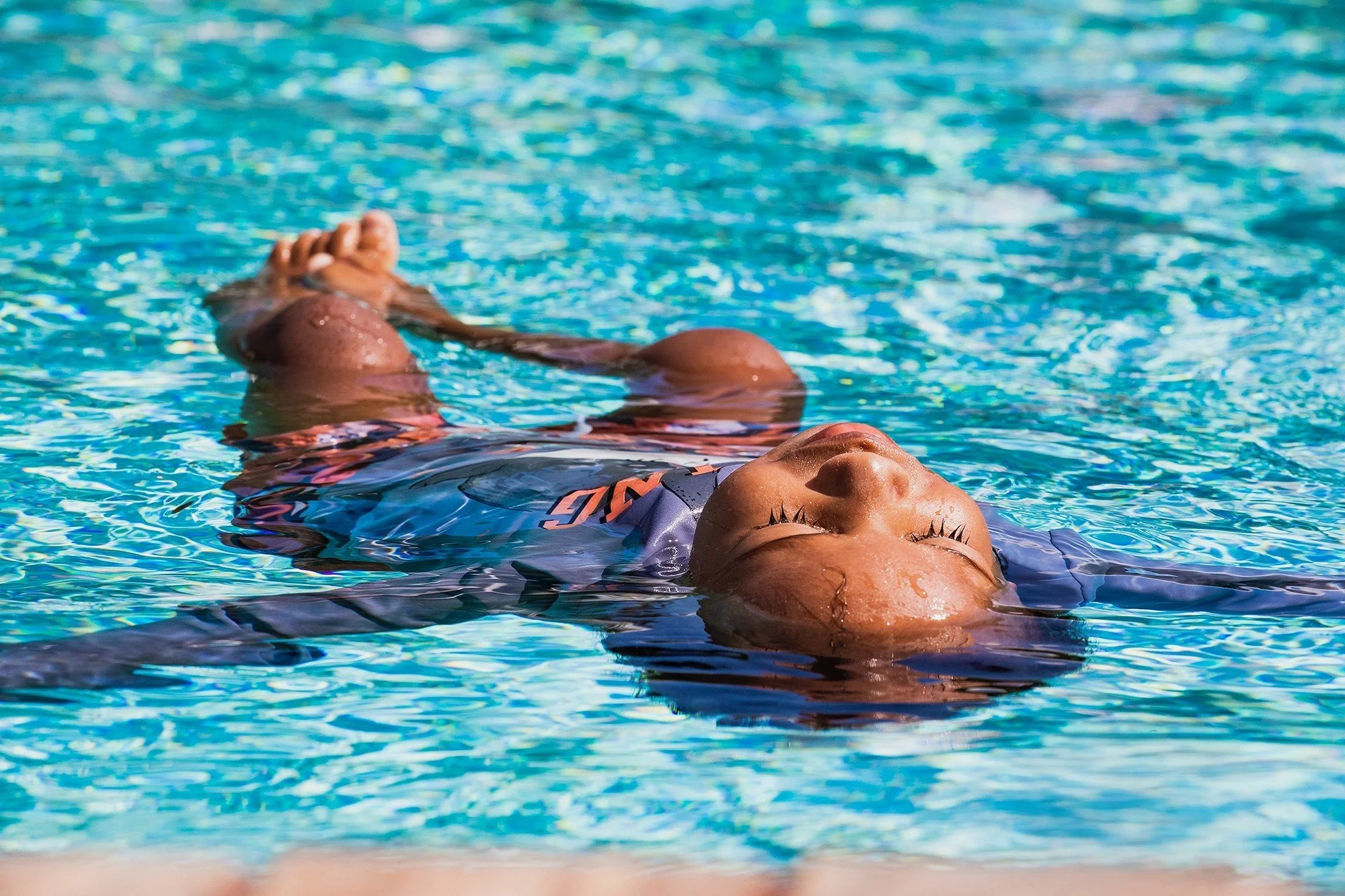
Frequently asked questions.
I hear you say your priority is survival skills. Will my child learn to actually swim?
Yes. At ISR, we believe that part of survival for a child who can walk is swimming. Children learn the swim-float-swim sequence so that they could get themselves to safety. The difference in our program is that they will learn swimming AND survival skills while becoming an aquatic problem solver.
Are swimming lessons for infants and young children safe?
I can’t speak for all swim lessons, but I can tell you ISR is dedicated to safety and maintaining numerous safety protocols to promote safe lessons. Your child's health and well-being are our highest priority and are closely monitored on a daily basis. In addition, your child's medical and developmental history is a mandatory part of the ISR national registration process, all of which is held strictly confidential. All ISR instructors undergo intensive and rigorous training that far exceeds any other training program of this kind. Each ISR instructor is also required to recertify yearly with emphasis on quality control, safety and lesson efficiency. Your education in the area of aquatic safety for your entire family is an integral part of your child's lessons. You will receive access to the "Parent Resource Guide" to inform you about every aspect of swimming and aquatic safety for infants and children. With research, you will find that ISR is not only the safest survival swimming program but also the most effective for teaching infants and young children.
Why are lessons 4 days per week and only for 10 minutes?
The reason for this is multifaceted. First, repetition and consistency are crucial elements of learning for young children. Research shows that short, more frequent lessons result in higher retention. Second, most children have fairly short attention spans and will not be able to focus on the task for longer and we want to take advantage of the best time for learning. A third reason is that, though the pool temperature is maintained at 78-88 degrees, the temperature is still lower than your child's body temperature. Lessons are work and therefore will also be losing body heat. Instructors check students regularly for temperature fatigue since this is an indicator of physical fatigue.
Will my child fear the water because of lessons?
There is an important difference between being fearful and being apprehensive because you are not yet skilled in a new environment. ISR is not like traditional swim lessons; it is a drowning prevention program that teaches survival swimming. Sometimes as a parent, you make choices for your child’s safety, like sitting in a car seat, because you know they are important. The same can be said for ISR. Fun can be defined as when skill meets challenge. Once competent in their skills, many children cannot be dragged away from the pool. They are having entirely too much FUN.
How do the kids react during the first few lessons?
Children often fuss during the first few lessons because they are in a new environment and around new people. As your child becomes more confident in his/her ability in the water, the fussing will decrease. It is not unlike the first time you tried a new exercise class or were asked to perform a task at work that you’d never done before: the first time you try a new task it is always challenging, until you get the hang of it. It is the same for your young child. Your child is learning to perform a skill that he/she’s never done before.
How is it that babies can learn to respond to the danger of water when they fall in?
A baby does not need to perceive danger or be afraid to respond appropriately to being underwater. If a baby has learned to roll over and float when he needs air, he doesn't need to perceive danger in order to respond in this manner. He needs skill, practice and confidence to calmly deal with the situation.
Do parents have to leave during the lessons?
No. You are truly the best cheerleader your child could have. Your positive support and encouragement are invaluable to creating an effective learning environment for your child.
What is the American Academy of Pediatrics position on swimming lessons for young children?
The AAP encourages parents to consider that starting water-survival skills training at an early age must be individualized, based on the child's frequency of exposure to water, emotional maturity, physical limitations and health concerns related to swimming pools. You can view their policies and suggestions through the AAP website here: https://www.healthychildren.org/English/safety-prevention/atplay/Pages/Swim-Lessons.aspx